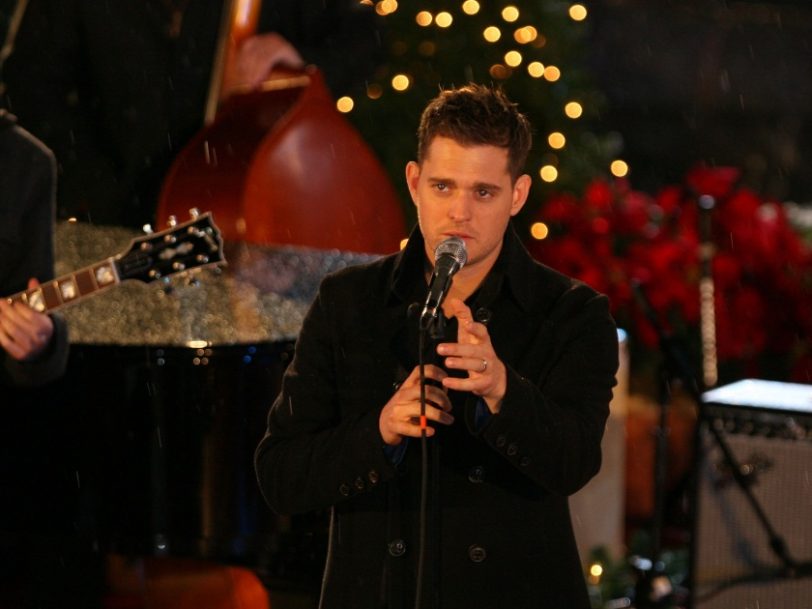In terms of its lyrics, the holiday favourite It’s Beginning To Look A Lot Like Christmas has all the essential ingredients of the best Christmas songs: its lyrics reference glistening snow, chiming bells, children’s toys, Christmas carols, a holly wreath and an abundance of candy. But we shouldn’t forget the warm, infectious, singalong melody that wraps it all up in a warm Christmassy embrace – the key to any successful Yuletide song. Modern-day crooner Michael Bublé certainly didn’t, and in 2011, he revived the tune, making sure it would remain a seasonal staple for evermore.
Listen to the best Christmas songs here.
Who wrote It’s Beginning To Look A Lot Like Christmas?
It’s Beginning To Look A Lot Like Christmas was initially published with a slightly shorter title, It’s Beginning To Look Like Christmas, in 1951, and it was written by Meredith Willson (1902-1984), a highly regarded professional songwriter from Mason City, Iowa, who was born Robert Reiniger Meredith Willson. Best known as the author of the 1957 Broadway musical The Music Man (which included the popular song Seventy-Six Trombones), Wilson was a virtuoso flute and piccolo player who began his career as a member of the New York Philharmonic Orchestra before breaking into the movie world and writing the Academy Award-nominated score for The Great Dictator, Charlie Chaplin’s 1940 satire of fascism.
Who sang It’s Beginning To Look At Lot Like Christmas?
The first recorded version of It’s Beginning To Look A Lot Like Christmas was made by the Italian American crooner Perry Como, in 1951, and was a Top 20 US hit. That same year, the treacle-voiced Bing Crosby also recorded the song, but his version wasn’t as successful. Since then, Willson’s Christmas cracker has shown a durability that is the hallmark of all great festive songs: it has been covered over 200 times, with Johnny Mathis, Dionne Warwick and Harry Connick, Jr, among the distinguished names who have put their mark on it.
When did Michael Bublé sing It’s Beginning To Look A Lot Like Christmas?
The most successful version of all, though, has been by the velvet-voiced Canadian singer Michael Bublé, whose music recalls the glory days of jazz singers such as Bing Crosby, Dean Martin and Frank Sinatra. Bublé put a fresh spin on It’s Beginning To Look A Lot Like Christmas for his multi-platinum Christmas album in 2011, and also released the track as a single that went on to chart in over 25 countries. In 2018, it re-entered the UK charts to peak at No.7; to date, the song is by far Bublé’s most played track on Spotify, with over 600 million streams.




